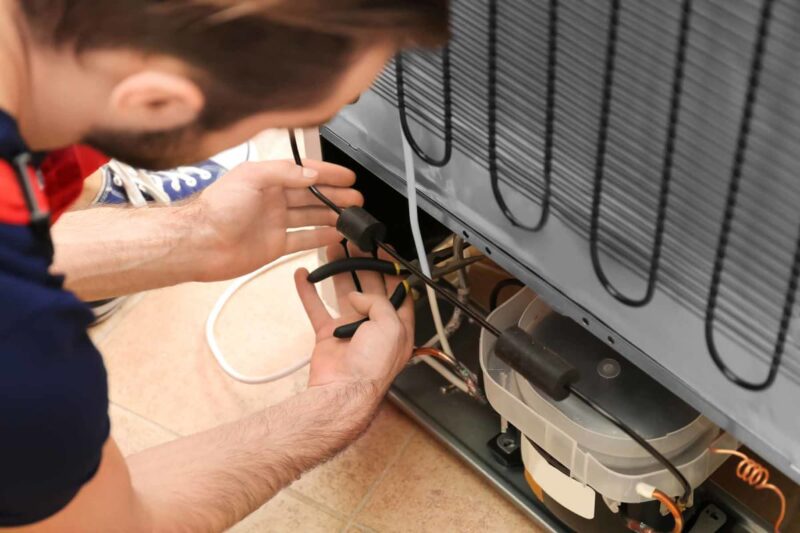In the food service, retail, and healthcare industries, refrigeration is more than just an operational requirement—it is the backbone of safety, quality, and efficiency. Whether it is storing fresh produce in a restaurant, vaccines in a clinic, or beverages in a supermarket, the choice of a commercial refrigerator can significantly influence performance outcomes. Businesses are increasingly mindful of what features matter most, making it important to evaluate refrigeration systems carefully rather than rushing to schedule today and settle for the first option available.
Energy Efficiency and Sustainability
A key element to weigh in any present-day refrigeration unit is how thrifty it is with energy. Commercial units run continuously, making them one of the largest consumers of electricity in a facility. Energy-efficient models, often designed with improved insulation, LED lighting, and advanced compressor technology, can reduce operating costs while minimizing the environmental footprint. Many organizations now prioritize refrigerators that carry ENERGY STAR certification, ensuring long-term savings and compliance with sustainability goals.
Storage Capacity and Layout
A well-designed commercial refrigerator balances storage capacity with accessibility. Depending on the type of business, requirements can range from compact reach-in units to expansive walk-in coolers. Adjustable shelving, sliding drawers, and customizable compartments allow operators to optimize space usage and reduce food waste. More importantly, a thoughtful layout reduces the time staff spend searching for items, directly contributing to smoother operations in busy environments.
Temperature Control and Consistency
Consistency in temperature regulation is non-negotiable for industries handling perishable goods. High-quality commercial refrigerators are equipped with digital thermostats, microprocessor controls, and automatic defrost systems to ensure reliable cooling. Alarms that alert staff to temperature fluctuations add another layer of security, safeguarding inventory from unexpected spoilage. For businesses in the pharmaceutical or healthcare sector, precise temperature control is essential to comply with strict safety standards.

Durability and Build Quality
Commercial refrigerators are built for heavy-duty use, often subjected to frequent opening and closing of doors. This makes durability a defining feature. Interiors and exteriors made of stainless steel are often preferred because they resist rust and are simple to wipe clean. Strong hinges, strengthened shelves, and sturdy seals help the unit endure everyday strain while still working smoothly. Investing in durable construction helps extend the lifespan of equipment and reduces the frequency of repairs.
Advanced Technology and Smart Features
The evolution of refrigeration has introduced smart features that improve convenience and oversight. Remote watch systems let users follow how the refrigerator works instantly, even when they are not at the place. Some units integrate with building management systems, providing data on energy consumption and temperature trends. While not every business may need advanced connectivity, such features can add value in environments where precise control and monitoring are mission-critical.
Ease of Maintenance and Cleaning
Another important aspect is how easily a refrigerator can be maintained. Fridges with detachable gaskets, shelves that wipe down easily, and condenser coils that are easy to reach make regular upkeep less troublesome. A design that minimizes downtime during servicing contributes to operational efficiency. Moreover, refrigerators that are straightforward to sanitize help businesses meet hygiene standards, particularly in industries where food safety is closely monitored.
Noise Levels and Placement
Although often overlooked, noise levels can affect the work environment, especially in open kitchens or customer-facing areas. Modern refrigerators are designed to operate more quietly without compromising on cooling capacity. Additionally, considering where the unit will be placed—front of house versus back of house—can guide decisions on whether aesthetics, noise reduction, or compact design should take priority.
Conclusion
Selecting a commercial refrigerator involves balancing performance, durability, energy efficiency, and operational needs. Each feature plays a role in ensuring food safety, optimizing workflow, and reducing long-term costs. Businesses that invest time in evaluating these considerations are better positioned to choose systems that align with their goals rather than simply reacting to immediate needs. By identifying requirements in advance and planning to schedule today for inspections, maintenance, or replacements, organizations can ensure their refrigeration systems remain reliable assets for years to come.

